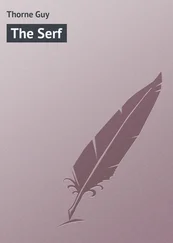Guy Thorne - The Socialist
Здесь есть возможность читать онлайн «Guy Thorne - The Socialist» — ознакомительный отрывок электронной книги совершенно бесплатно, а после прочтения отрывка купить полную версию. В некоторых случаях можно слушать аудио, скачать через торрент в формате fb2 и присутствует краткое содержание. Жанр: foreign_prose, на английском языке. Описание произведения, (предисловие) а так же отзывы посетителей доступны на портале библиотеки ЛибКат.
- Название:The Socialist
- Автор:
- Жанр:
- Год:неизвестен
- ISBN:нет данных
- Рейтинг книги:4 / 5. Голосов: 1
-
Избранное:Добавить в избранное
- Отзывы:
-
Ваша оценка:
- 80
- 1
- 2
- 3
- 4
- 5
The Socialist: краткое содержание, описание и аннотация
Предлагаем к чтению аннотацию, описание, краткое содержание или предисловие (зависит от того, что написал сам автор книги «The Socialist»). Если вы не нашли необходимую информацию о книге — напишите в комментариях, мы постараемся отыскать её.
The Socialist — читать онлайн ознакомительный отрывок
Ниже представлен текст книги, разбитый по страницам. Система сохранения места последней прочитанной страницы, позволяет с удобством читать онлайн бесплатно книгу «The Socialist», без необходимости каждый раз заново искать на чём Вы остановились. Поставьте закладку, и сможете в любой момент перейти на страницу, на которой закончили чтение.
Интервал:
Закладка:
Lady Constance had been sitting by the piano. "Do you play, Lady Constance?" the duke asked.
"She's one of the best amateur pianists I've ever heard," said Lord Hayle.
"Do play something, Lady Constance. What will you give us?"
"It depends on the sort of music you like. Do you like Chopin?"
"I am very fond of Chopin indeed."
"I'll tell you what to play, Connie," said Lord Hayle eagerly. "Play that wonderful nocturne, I forget the number, where the bell comes in. The one with the story about it."
"A story?" said the duke.
"Yes; don't you know it, John? Chopin had just come back from his villa at Majorca – come back to Paris at a time when Georges Sand would have nothing more to do with him. He was living close to Notre Dame. He had a supper by appointment, but began to write his nocturne and forgot all about the time. He was nearing the end when the big bell of the cathedral began to toll midnight. He realised how late it was, and forced himself to finish the thing in a hurry. He wove the twelve great 'clangs' into the theme. It's marvellously romantic and Gothic. One seems to see Victor Hugo's dwarf, Quasimodo, upon the tower, drinking in the midnight air."
Lady Constance sat down at the piano and began the nocturne. The beautiful hands flashed over the keys, whiter than the ivory on which they pressed, her face was grave with the joy of what she was doing.
And as the duke listened the time and place faded utterly away.
The passionate and yet fantastic music pealed out into the room and destroyed its material appeal to the senses. His brain seemed suddenly aware of a larger and more fully-coloured life than he had ever known before, ever thought possible before. He stood upon the threshold of it; it held strange secrets, wonderful chances; there were passionate moments for young blood awaiting!
Here was the agony that lurked in pleasure, the immedicable pain which allured – lights gleamed behind swaying veils.
Clang!
The deep resonance of the iron bell tolled into the dream.
Clang!
The twin towers of Notre Dame were stark and black up in the sky.
Clang!
The dark sky grew rosy, he saw her hands, he saw the light upon her face. It was dark no longer – the bell had tolled away the old day, dawn was at hand, the new day was coming; the dawn of love was rosy in the sky.
It was four o'clock when the duke's guests went away.
He went with them through the two quadrangles of Paul's to the massive gateway, and saw the three tall figures disappear in the mist with a sense of desolation and loss.
But as he was returning to his rooms to get cap and gown in which to visit the dean of his college, he comforted himself with the reflection that term was almost over.
In a week or so he would be in London, staying in the same house with her! The very thought set his heart beating like a drum!
He was nearly at the door of his staircase when he saw a man coming towards him, evidently about to speak to him. It was a man he recognised, though he had never spoken to him, a man called Burnside.
St. Paul's, as it has been said, was a college in which nearly all the undergraduates were rich men. A man of moderate means could not afford to join it. At the same time, as in the case of all colleges, there were half-a-dozen scholarships open to any one. As these scholarships were large in amount they naturally attracted very poor men. At the present moment there were some six or seven scholars of Paul's, who lived almost entirely upon their scholarships and such tutorial work as they could secure in the vacations. But these men lived a life absolutely apart from the other men of the college. They could afford to subscribe to none of the college clubs, they could not dress like other men, they could not entertain. That they were all certain to get first-classes and develop into distinguished men mattered nothing to the young aristocrats of the college. For them the scholars simply did not exist.
Burnside, the duke had heard somewhere or other, was one of the most promising scholars of his year, but he wore rather shabby black clothes, very thick boots, and a made-up tie; he was quite an unimportant person!
He came up to the duke now, his pale intelligent face flushing a little and a very obvious nervousness animating him.
"Might I speak to you a moment?" he said.
The duke looked at him with that peculiar Oxford stare, which is possibly the most insolent expression known to the physiognomist, a cultivated rudeness which the Oxford "blood" learns to discard very quickly indeed when he "goes down" and enters upon the realities of life.
The duke did not mean anything by his stare, however; it was habit, that was all, and seeing the nervousness of his vis-à-vis was growing painful, his face relaxed. "Oh, all right," he said. "What is it – anything I can do? At any rate, come up to my rooms, it's so confoundedly dismal out here this afternoon."
The two men went up the stairs together and entered the huge luxurious sitting-room, with its brilliant lights, its glowing fire, its pictures and flowers. Burnside looked swiftly around him; he had never dreamed of such luxury, and then he began —
"I hope you won't think me impertinent," he said, "but I have just received a telegram from the Daily Wire . I occasionally do some work for them. They tell me that part of your town house has been destroyed by an explosion, and that some famous art treasures have been destroyed."
"That's quite true, unfortunately," said the duke.
"And they ask me to obtain an interview with you for to-morrow's paper in order that you may make some statement about your loss." He spoke with an eagerness that almost outweighed, at any rate, alleviated his nervousness.
"Most certainly not!" said the duke sharply. "I wonder that you should permit yourself to make me such a request. I will wish you good-afternoon!"
The other muttered something that sounded like an apology and then turned to go. His face was quite changed. The eagerness passed out of it as though the whole expression had suddenly been wiped off by a sponge. An extraordinary dejection, piteous in the completeness of its disappointment, took its place. The duke had never seen anything so sudden and so profound before; it startled him.
The man was already half-way to the door when the duke spoke again.
"Excuse me," he said, and from mere habit his voice was still cold, "would you mind telling me why you seem so strangely disappointed because I have not granted your request?"
A surprise awaited him. Burnside swung round on his feet, and his voice was tense as he answered.
"Oh, yes, I'll tell you," he said, "though, indeed, how should you understand? The editor of the Daily Wire offered me fifteen pounds in his telegram if I could get a column interview with you. I am reading history for my degree, and there are certain German monographs which I can't get a sight of in Oxford or London. The only way is to buy them. Of course, I could not afford to do that, and then suddenly this opportunity came. But you can't understand. Good-afternoon!"
For the second time that day the duke was mildly surprised, but he understood.
"My dear sir," he said in a very different tone, "how was I to guess? I am very sorry, but I really am so – so ignorant of all these things. Come and sit down and interview me to your heart's content. What does it matter, after all? Will you have a whisky and soda, or, perhaps, some tea? I'll call my scout."
In five minutes Burnside was making notes and asking questions with a swift and practical ability that compelled his host's interest and admiration. The duke had never met any one of his own age so business-like and alert. His own friends and contemporaries were so utterly different. He became quite confidential, and found that he was really enjoying the conversation.
Читать дальшеИнтервал:
Закладка:
Похожие книги на «The Socialist»
Представляем Вашему вниманию похожие книги на «The Socialist» списком для выбора. Мы отобрали схожую по названию и смыслу литературу в надежде предоставить читателям больше вариантов отыскать новые, интересные, ещё непрочитанные произведения.
Обсуждение, отзывы о книге «The Socialist» и просто собственные мнения читателей. Оставьте ваши комментарии, напишите, что Вы думаете о произведении, его смысле или главных героях. Укажите что конкретно понравилось, а что нет, и почему Вы так считаете.












